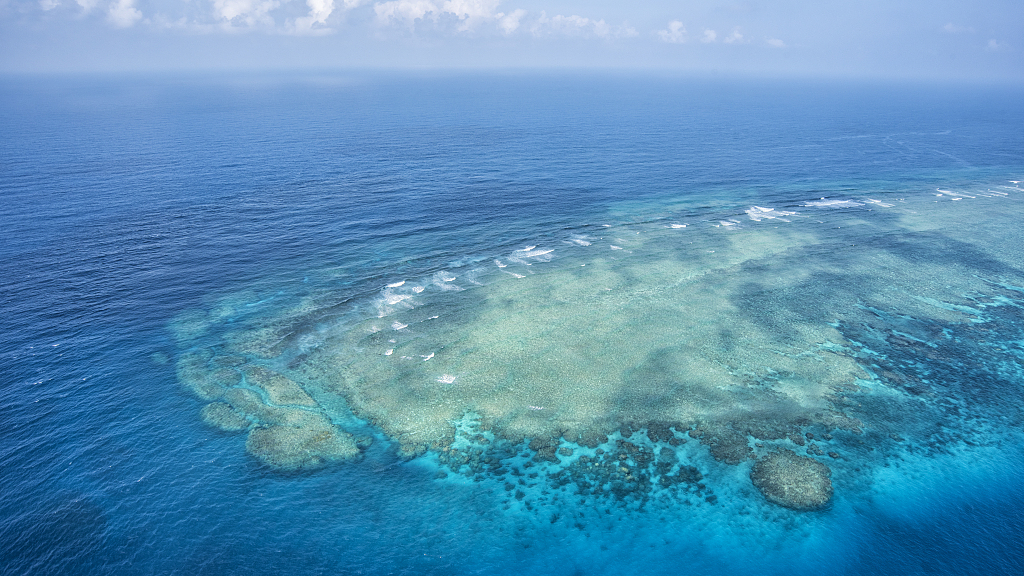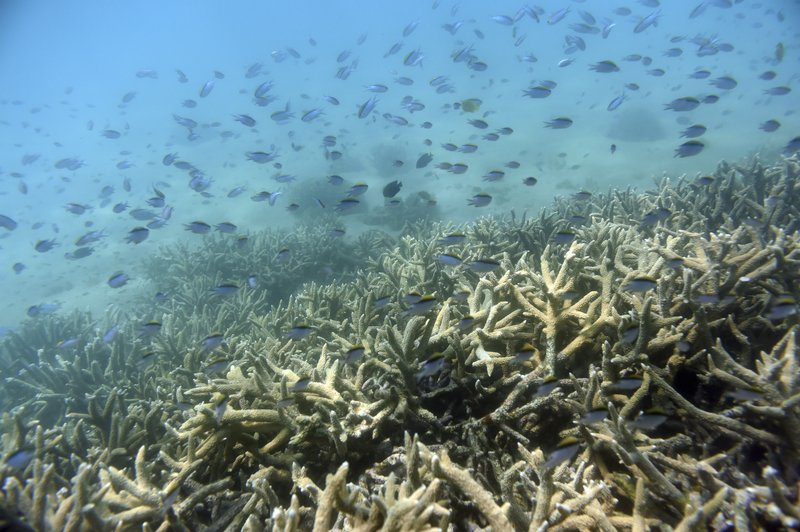

The government agency that manages Australia's Great Barrier Reef has downgraded its outlook for the corals' condition from "poor" to "very poor" due to warming oceans.
The Great Barrier Reef Marine Park Authority's condition report, which is updated every five years, is the latest bad news for the 345,400-square-kilometer colorful coral network off the northeast Australian coast as climate change and coral bleaching take their toll.
The report issued on Friday finds the greatest threat to the reef remains climate change. The other threats are associated with coastal development, land-based water runoff and human activity such as illegal fishing.
The report is the agency's third and tracks continuing deterioration since the first in 2009. The deterioration in the reef's outlook mostly reflects the expanding area of coral killed or damaged by coral bleaching.

In this photo taken in 2016, fish swim along the edges of a coral reef off Great Keppel Island in Australia. /AP Photo
The report said the threats — which include the star-of-thorns starfish that prey on coral polyps — are "multiple, cumulative and increasing."
A study of coral bleaching on the reef, published in the journal Nature in 2017, found 91 percent of the coral reef had been bleached at least once during three bleaching events of the past two decades, the most serious event occurring in 2016.
A fourth major bleaching struck later in 2017 after the Nature study was published.
The United Nations' World Heritage Committee expressed concerns over bleaching in 2017 and the report on Thursday could lead to the World Heritage-listed natural wonder being reclassified by UNESCO next year as "in danger."
Environment Minister Sussan Ley said her government was "building resilience in this important global reef" and was keeping its Paris commitment to reduce Australia's greenhouse gas emissions by 26 to 28 percent below 2005 levels by 2030.
While the Great Barrier Reef is the world's largest coral reef system, reefs around the world are under stress from warming ocean temperatures.
(Cover images via VCG.)
(If you want to contribute and have specific expertise, please contact us at nature@cgtn.com)

Copyright © 2018 CGTN. Beijing ICP prepared NO.16065310-3
Copyright © 2018 CGTN. Beijing ICP prepared NO.16065310-3